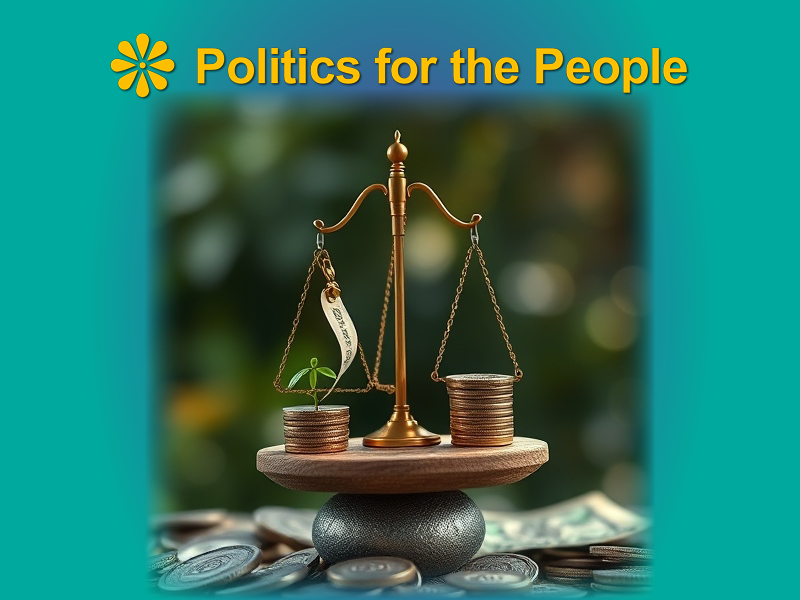Introduction to Bridging Wealth Gaps
In Australia, the growing economic disparities have put the spotlight on the Reserve Bank of Australia (RBA) and the country’s lax regulatory frameworks. This article explores the role of RBA’s interest rate policies and the broader economic system’s shortcomings in regulating corporate power and wealth concentration.
It discusses the government’s complicity in these issues and outlines an inclusive alternative focused on robust regulation, social safety nets, education, and income redistribution. This fundamental shift aims to pave the way towards a fairer, more inclusive economic future for all Australians.
The Reserve Bank of Australia’s Influence on Wealth Disparity
Interest Rate Policies and Asset Price Inflation

The RBA is tasked with managing Australia’s monetary policy and ensuring financial stability, which includes setting interest rates. Traditionally, lower interest rates are designed to stimulate economic growth by encouraging borrowing and investment. However, these low rates have also led to significant increases in asset prices such as real estate and stocks. Since wealthier individuals and families disproportionately own these assets, the wealth gap widens as these assets appreciate, helping those at the top.
Amplifying Economic Inequities
The RBA’s use of interest rates as a primary economic control mechanism helps those with capital while raising property and stock market prices. This results in substantial financial gains for asset owners. Meanwhile, wage earners, without significant investments, receive little benefit and face the burden of increased living costs due to asset inflation. This disparity perpetuates a cycle where the rich accumulate wealth at a faster rate than the rest of the population.
The Role of Corporate Power and Wealth ConcentrationCorporate entities and wealthy individuals in Australia’s loosely regulated economic system exploit numerous loopholes to minimize tax liabilities. They use offshore tax havens, receive help from favourable capital gains tax rates, and employ complex financial instruments to shield their wealth.
Furthermore, corporate lobbying for employer-friendly labour laws leads to wage suppression. These practices contribute significantly to wealth concentration, worsening economic imbalances and deepening the divide between the wealthy and the less affluent. They do nothing to bridging wealth gaps.
Exploring Solutions to Economic Regulation and Bridging Wealth Gaps
Enhanced regulatory frameworks are crucial to counteract the concentration of wealth. Stricter corporate governance should be implemented to oversee corporate practices and ensure fairness. Additionally, fairer tax laws are needed to prevent the wealthy and corporations from exploiting loopholes to evade taxes. Policies to limit monopolistic practices should also be introduced, preventing large corporations from dominating markets. These changes would help redistribute economic power more evenly and ensure a fairer playing field for all stakeholders.
Government Complicity in Economic Inequities
The Need for Effective Regulation and Safeguards
The lack of effective regulation in Australia has allowed wealthy individuals, corporations, and powerful interest groups to wield disproportionate influence over economic policies. These policies often prioritize short-term gains, such as tax cuts for high-income earners, deregulation, and subsidies for major industries, while neglecting long-term societal well-being.
As a result, economic growth is often concentrated among the affluent, worsening wealth disparities and leaving ordinary Australians to bear the burden of stagnant wages, rising living costs, and diminishing public services.
For example, weak regulation in sectors like housing and energy has enabled speculative investments and price gouging, making essential goods and services increasingly unaffordable for many Australians. Similarly, lax oversight of corporate taxation allows large multinational corporations to shift profits offshore, depriving the nation of resources that could be used for public infrastructure, healthcare, and education.
To address these inequities, it is crucial to implement robust regulations and safeguards that prevent systemic exploitation and ensure that economic policies promote fairness and inclusivity. These measures could include:
– Enforcing stricter corporate accountability: Requiring companies to show their financial practices, environmental impacts, and labor conditions ensures greater transparency and compliance with ethical standards.
– Strengthening consumer protections: Introducing laws that curb predatory practices, such as excessive fees or misleading advertising, can help shield ordinary Australians from exploitation.
– Balancing market power: Anti-monopoly laws and market oversight are necessary to prevent the concentration of economic power in the hands of a few corporations, ensuring fair competition and broader access to opportunities.
By adopting these reforms, the government can create an environment where economic growth is not only sustainable but also helps all Australians, rather than perpetuating the cycle of inequality.
Advocating for Accountability and Transparency
Accountability and transparency are cornerstones of effective governance, yet their absence in policymaking has contributed significantly to economic inequities. In many cases, opaque decision-making processes allow vested interests to shape policies that prioritize corporate profits over public welfare. For instance, lobbying efforts by large corporations often go unchecked, resulting in subsidies and tax breaks that help the elite while eroding public trust.
To restore public confidence, government actions must be subject to rigorous scrutiny and accountability. Policymaking should involve open and inclusive consultations with stakeholders, including labor unions, community organizations, and independent experts, ensuring that diverse perspectives are considered. Transparent processes, such as publishing cost-benefit analyses of proposed policies, would allow the public to evaluate their fairness and effectiveness.
Additionally, strengthening mechanisms for public oversight is essential. Establishing independent watchdog bodies to check government spending, corporate compliance, and lobbying activities can deter corruption and misuse of resources. Citizens should also have access to tools that help engagement, such as participatory budgeting, where communities can influence how public funds are distributed.
Equally important is the need for fair distribution of the benefits of economic growth. Transparent reporting on how economic gains is used—whether in public services, infrastructure, or social welfare—ensures that progress is not disproportionately captured by the wealthy. For instance, publishing data on the impact of major policies, such as tax reforms or subsidies, allows citizens to see whether they are achieving their stated goals or contributing to inequality.
By embedding accountability and transparency into every level of governance, Australia can ensure that economic development serves the broader public interest, reducing disparities and fostering a more inclusive society. These measures not only rebuild trust in public institutions but also empower citizens to take part actively in shaping a fairer economic future and bridging wealth gaps.
Proposing an Inclusive Economic Alternative
Robust Regulations and Social Safety Nets
The establishment of stringent regulations is necessary to curb economic exploitation and ensure fair market play. Alongside these regulations, the strengthening of social safety nets such as universal healthcare, affordable housing, and quality education is vital. These safety nets provide crucial support to those facing economic hardships, promoting equality, and reducing disparities within society.
Prioritizing Education and Income Redistribution
Investing heavily in education is essential as it equips individuals with the skills and knowledge necessary to thrive in a competitive economy. Additionally, supporting income redistribution policies such as progressive taxation and social welfare programs is crucial for reducing inequality. These measures help redistribute wealth more equitably and empower all individuals, thereby enhancing economic mobility and fostering a more inclusive society.
Conclusion and Call to Action
The role of the Reserve Bank of Australia and the current economic regulatory framework have significant implications on wealth distribution in the country. To address these challenges and move towards a fairer economic system, a comprehensive shift in policy and public support is necessary. This article encourages all Australians to consider how these issues affect their lives and to engage in a broader conversation about economic reform.
Question for Readers
How have economic disparities affected your life or community?
Call to Action
We invite you to share your thoughts and join the discussion on creating a fairer economic system in Australia. Help spread the word by sharing this article with your contacts and on social media.
References:
Is there a better way to kill inflation than raising interest rates: https://www.abc.net.au/news/2023-02-12/raising-interest-rates-reserve-and-bank-and-inflation-management/101952926
Why the RBA’s interest rate rise won’t work: https://www.thesaturdaypaper.com.au/news/economy/2022/06/11/why-the-rbas-interest-rates-rise-wont-work
RBA’s rate rise gives free billions to Aussie banks: https://michaelwest.com.au/rbas-rate-rise-gives-free-billions-to-aussie-banks/
Mortgage bills to rise again: https://thenewdaily.com.au/finance/finance-news/2023/06/06/rba-interest-rates-june-2023/
Profits have driven inflation while wages lag behind, argue economists: https://www.abc.net.au/news/2023-02-24/profits-drive-inflation-while-wages-lag-behind/102014162

